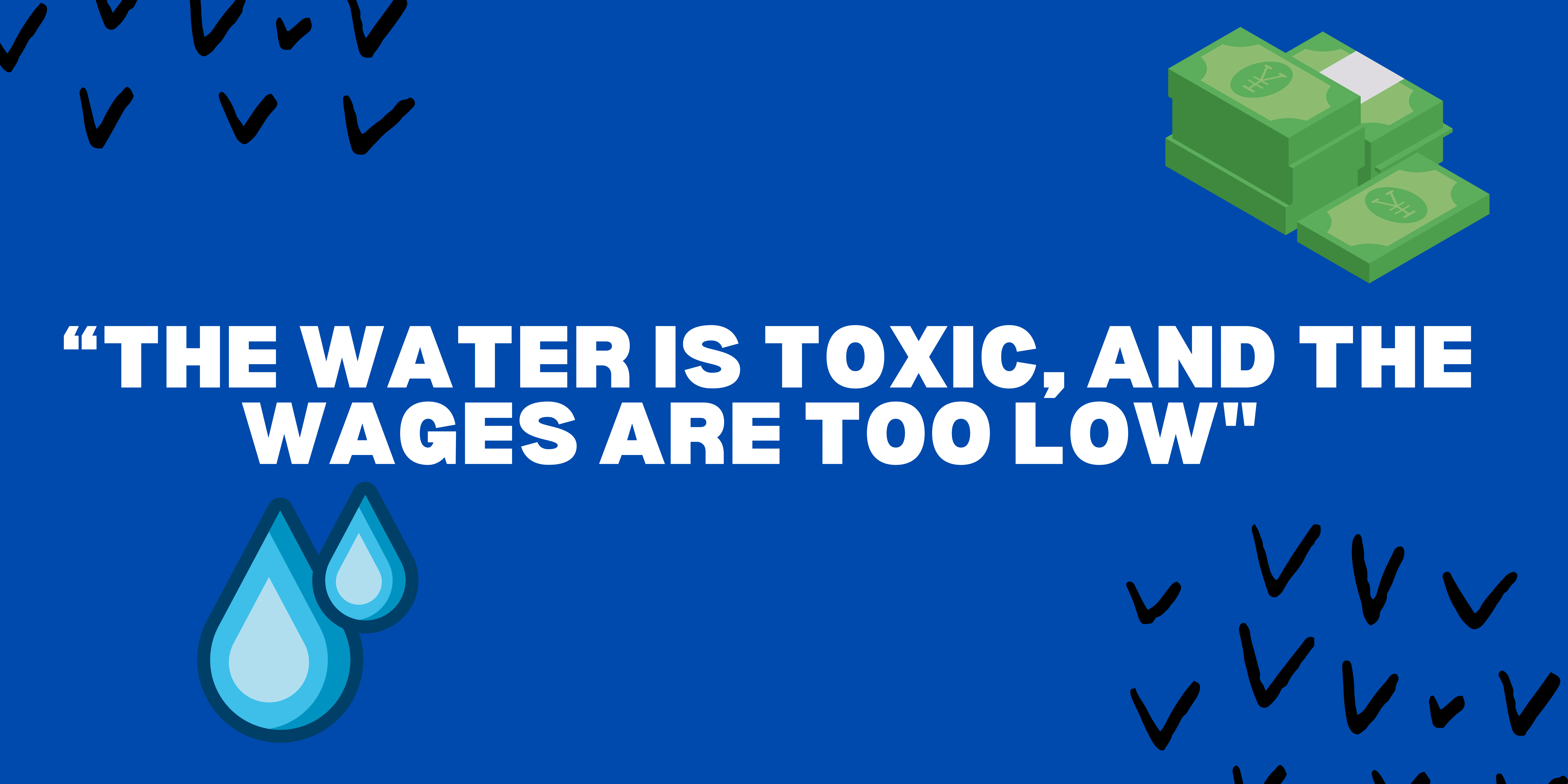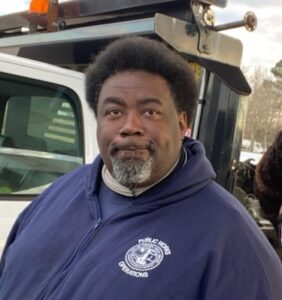
The City Works Because We Do!
Every day, tens of thousands of blue-collar public sector workers help our Virginia communities have clean drinking water, dispose of our trash, keep sewage and stormwater from overflowing, keep our parks and beaches beautiful, care for those who need medical care, and more. Now these city workers are asking for a voice in their democracy on the job every day via collective bargaining.
The impact of unions is not just on pay and benefits. Collective bargaining provides a way for represented workers to formally express their ideas for how to improve the quality of services, their workflow and workplaces. This can improve communication and a sense of belonging. Having the experience of collective bargaining and union representation in the workplace even makes people — particularly younger people and those with less formal education — more likely to participate in other systems of democratic governance such as voting.
In May 2021, the Virginia state law changed allowing, for the first time in history, for local government employees to collectively bargain a union contract with city, state and local school boards. However, the local governments must first pass a resolution allowing for this process to begin.
Collective Bargaining is a Matter of Racial Justice
Workers performing the essential tasks to keep our cities beautiful, who are predominantly Black and Brown, face low pay and unsafe conditions. This is the result of their lack of collective bargaining rights for the last four decades, intended to disempower people of color during the Civil Rights Movement.
What is collective bargaining?
Collective bargaining is the basic process of negotiation between workers who have organized a union and their employer on issues such as wages, work rules and policies, child care, staffing ratios, health and safety on the job, benefits, insurance premiums, work schedules, vacation, etc.
Collective bargaining gives organized workers a tool through which to change unfair working conditions and have a real voice on the job.
Collective bargaining promotes pay equity
For public employees, one of the benefits of unions with collective bargaining rights is increasing pay to levels that are closer to that which could be obtained in the private sector. Overall, public-sector collective bargaining tends to boost pay by 5% to 8%, and the fair and clear standards provided by unionization particularly help Black and Latinx workers.
Women, who make up the majority of local government workers (especially in Virginia), would also particularly benefit from collective bargaining. This is important because past discrimination and ongoing barriers mean Black workers, Latinx workers, and women of all races are still typically paid less than white men with the same level of education and experience in both public- and private-sector employment.
While local employees in Virginia are typically paid 29.9% less than their private-sector counterparts with similar educations, states where public employees are allowed to collectively bargain have smaller pay penalties. In states that have a policy like Virginia’s new law that allows but does not require localities to permit employees to collectively bargain, the average pay gap for local employees compared to their private-sector peers was 16.6%, and where collective bargaining rights were protected by the state the pay gap was 10.5%.
Since women and Black people are more likely to choose public service jobs, addressing pay penalties for public employees will reduce the broader problem of women and Black people being paid less than their peers with similar levels of education and experience.
Given the particular importance of unions in raising pay for those who for too many years have been underpaid compared to their levels of experience and education, it is not surprising that anti-union laws throughout the south were passed using explicit appeals to racist ideas. Undoing that legacy will require proactive steps to create more equitable policies and workplaces.

Louis
prevent flooding by maintaining storm water runoff.

Tina
Prevents mosquito infestations.

Floyd
keep clean drinking water flowing.
Latest News
Virginia Beach City Workers Rally for Collective Bargaining Before the Election
As the City of Virginia Beach prepares for an important election, especially given the newly drawn city council districts...
Read MoreMyths and Facts for Public Sector Workers in Virginia
Myth: Virginia is a right-to-work state, therefore it’s illegal for public employees to join unions. Fact: “Right-to-work” is part...
Read MoreFrequently Asked Questions About Public Sector Collective Bargaining in Virginia
Is collective bargaining an internationally recognized human right? According to the United Nations International Declaration of Human Rights, it...
Read MoreA project of the Southern Worker Justice campaign.

For any inquiries, please call Terry Green
(757) 409-0845